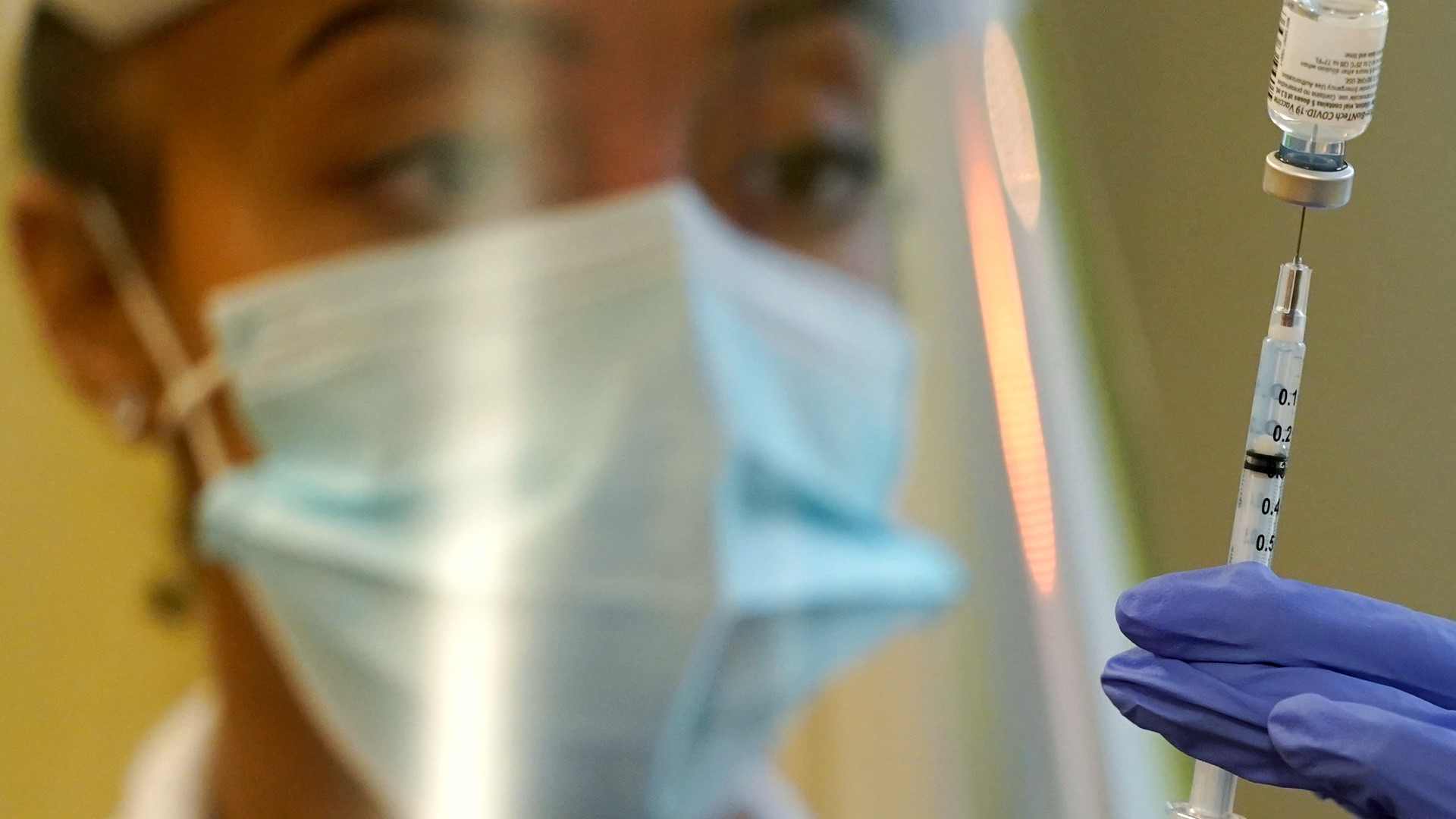ST. PETERSBURG, Fla. — With the omicron variant creating the latest COVID-19 surge around the world and a tsunami of cases in Florida, we're looking into the importance of a booster shot.
Recently, the Centers for Disease Control and Prevention changed its guidelines for quarantine and isolation, and a lot hinges on whether or not you've received a booster shot of the vaccine.
Let's look at the numbers.
Data
At the time of this article according to the CDC, 61.9 percent of the U.S. population is fully vaccinated. Of that group, 33.1 percent have also gotten their booster shot.
For Florida's numbers, we look to the Department of Health's weekly report. A new one is scheduled to come out Dec. 31, but we'll use the most recent report published on Christmas Eve.
The report says about 58.7 percent of Florida's population is fully vaccinated with about 31.9 percent of that group boosted, as well.
You can look up your county's vaccine rates here.
Experts are now sounding the alarm to get boosted as soon as possible.
Preventing hospitalizations
Dr. Aileen Marty has expertise in infectious diseases and teaches at Florida International University. She says the booster is making a big difference in hospitalizations.
She said, "Just looking at the numbers, it’s crystal clear that the people who are boosted are by far and away the least likely to end up going to an ER and certainly getting admitted. Less than 3 percent of people fully boosted end up in the ER. That’s really significant."
Get boosted now
Marty's advice is to get your booster now and if you can, choose a different vaccine than the one you initially had.
"A third dose of a different vaccine tends to give you a better mix of new memory cells," said Marty who especially emphasized the importance of getting one of the mRNA vaccines (Pfizer or Moderna) after the single-dose Johnson & Johnson vaccine.
Months ago, the CDC gave the green light on mixing and matching vaccines so you can consult your own doctor to decide what combination is best for you. Marty says the initial J&J recipients might want to consider a third shot three to six months after their booster.
What about J&J people?
"If we want to be very truthful about it, you never really were one and done with J&J. That was bad. That was never accurate because you never got to the same levels of antibody protection or T cell protection that you got with two doses," she said.
Immediate protection
The good news about any booster is it offers protection faster than the first two doses because your body already has some memory to it. Marty says you'll get some antibody response right away and it will go up even more over the next week or so.
More information on booster shots from the CDC can be found here.

